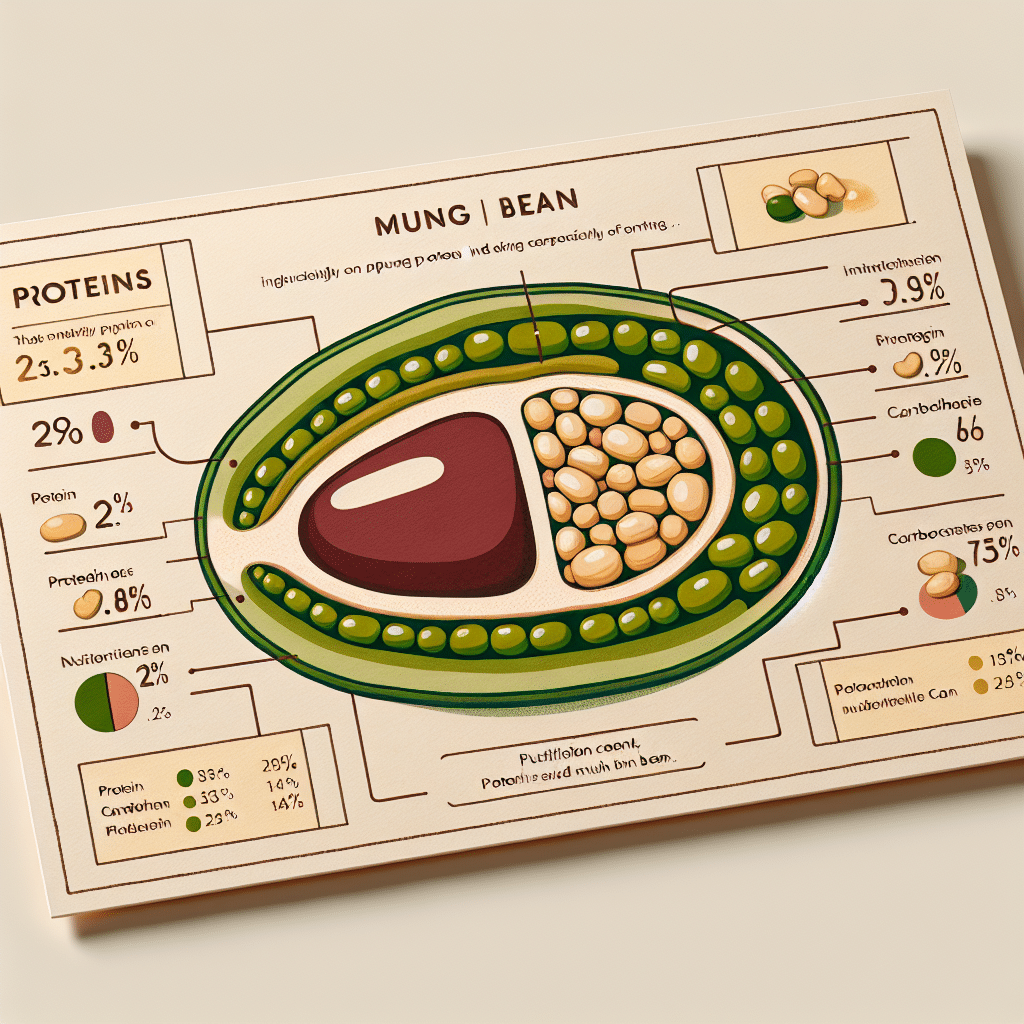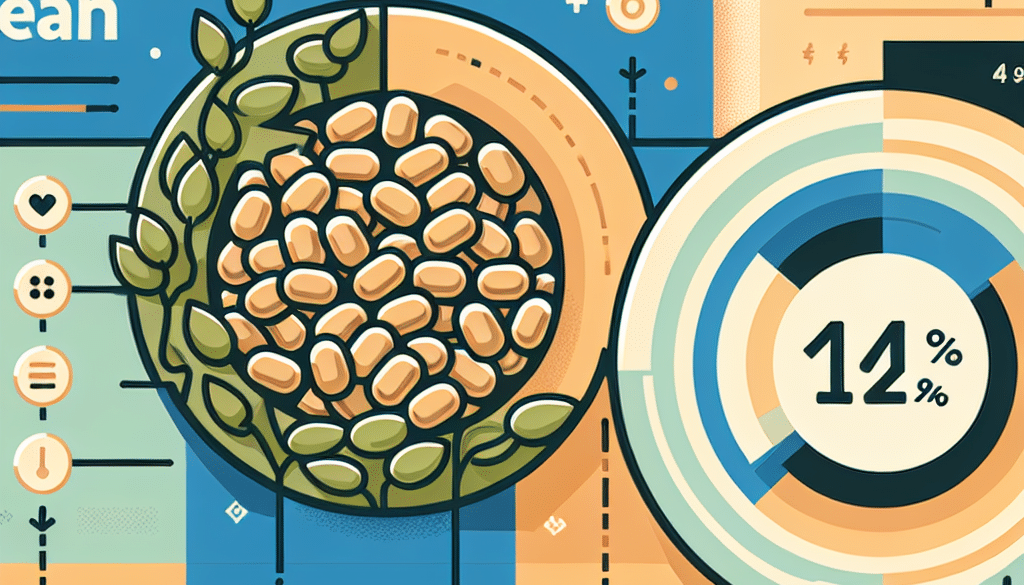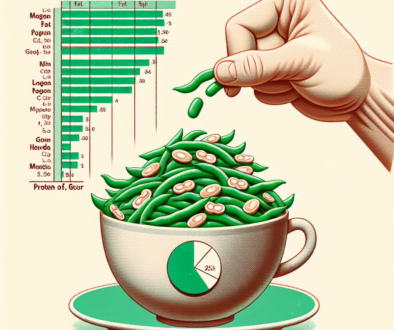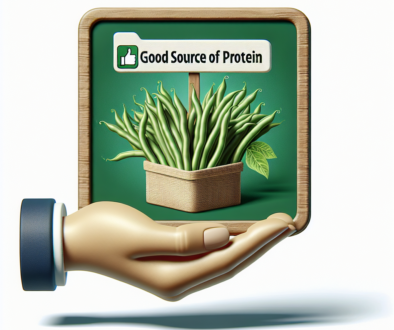Is Mung Bean A Protein Or Carb?
-
Table of Contents
- Mung Bean Nutrition: Balancing Protein and Carbs for Health
- Understanding Mung Beans: A Nutritional Overview
- Nutritional Composition of Mung Beans
- Protein vs. Carbohydrates in Mung Beans
- Health Benefits of Mung Beans
- Incorporating Mung Beans into Your Diet
- Examples of Mung Bean Dishes
- Case Studies and Statistics
- Conclusion: Mung Beans as a Balanced Source of Protein and Carbs
- Discover ETprotein’s Mung Bean Protein Products
Mung Bean Nutrition: Balancing Protein and Carbs for Health

When it comes to understanding the nutritional profile of mung beans, a common question arises: Are mung beans a protein or a carb? This article delves into the nutritional composition of mung beans, their health benefits, and how they fit into a balanced diet. We will explore the role of mung beans as both a protein and carbohydrate source, supported by research and statistics, and conclude with insights into how ETprotein’s mung bean protein products can be a valuable addition to your diet.
Understanding Mung Beans: A Nutritional Overview
Mung beans, scientifically known as Vigna radiata, are small, green legumes that have been cultivated for thousands of years. They are a staple in many Asian cuisines and are becoming increasingly popular worldwide due to their versatility and health benefits. To understand whether mung beans are primarily a protein or a carb, we must examine their nutritional content.
Nutritional Composition of Mung Beans
- Protein Content: Mung beans are an excellent source of plant-based protein. On average, a cup of cooked mung beans contains about 14 grams of protein, making them a significant contributor to daily protein intake, especially for vegetarians and vegans.
- Carbohydrate Content: Mung beans also contain carbohydrates, with a cup of cooked mung beans providing around 38 grams. However, they are low in the glycemic index, which means they have a minimal impact on blood sugar levels.
- Fiber: High in dietary fiber, mung beans help promote digestive health and can aid in weight management. A cup of cooked mung beans contains approximately 15 grams of fiber.
- Vitamins and Minerals: Mung beans are rich in essential vitamins and minerals, including potassium, magnesium, folate, and B vitamins, which are crucial for various bodily functions.
Protein vs. Carbohydrates in Mung Beans
While mung beans contain both protein and carbohydrates, they are often celebrated for their high protein content relative to other legumes. The protein in mung beans is of high quality, containing essential amino acids necessary for muscle repair and growth. However, the carbohydrates in mung beans are equally important as they provide the body with energy and support metabolic functions.
Health Benefits of Mung Beans
Mung beans offer a plethora of health benefits, making them a valuable addition to any diet. Here are some of the key health advantages:
- Improved Digestive Health: The fiber in mung beans can prevent constipation and promote regular bowel movements.
- Heart Health: Mung beans may reduce bad cholesterol levels and lower the risk of heart disease due to their fiber, potassium, and magnesium content.
- Blood Sugar Control: The low glycemic index of mung beans makes them suitable for people with diabetes, as they help regulate blood sugar levels.
- Weight Management: The combination of protein and fiber in mung beans can lead to increased satiety, which may help with weight loss efforts.
- Plant-Based Protein Source: For those following a vegetarian or vegan diet, mung beans provide a significant amount of protein without the need for animal products.
Incorporating Mung Beans into Your Diet
Mung beans can be enjoyed in various forms, such as whole, split, or ground into flour. They can be incorporated into soups, salads, curries, and even desserts. Sprouted mung beans are also a popular choice for adding a crunchy texture to meals.
Examples of Mung Bean Dishes
- Mung Bean Soup: A hearty and nutritious soup that can be a complete meal on its own.
- Mung Bean Salad: A refreshing and protein-packed salad, perfect for a light lunch.
- Mung Bean Curry: A flavorful and satisfying dish that pairs well with rice or bread.
- Mung Bean Pancakes: A unique and healthy twist on traditional pancakes, using mung bean flour.
Case Studies and Statistics
Several studies have highlighted the benefits of including mung beans in the diet. For instance, research published in the “Journal of Nutrition and Metabolism” found that mung bean protein can help lower blood pressure levels in hypertensive rats. Another study in the “American Journal of Clinical Nutrition” suggested that the high fiber content in legumes like mung beans is associated with a lower risk of heart disease.
Statistics from the United Nations Food and Agriculture Organization indicate that the global production of mung beans has been increasing, reflecting their growing popularity as a health food.
Conclusion: Mung Beans as a Balanced Source of Protein and Carbs
In conclusion, mung beans are both a protein and a carbohydrate source, offering a balanced nutritional profile that can support various health goals. Their high protein content makes them an excellent choice for those looking to increase their plant-based protein intake, while their carbohydrates provide sustained energy. With their numerous health benefits and versatility in cooking, mung beans are a valuable addition to any diet.
Discover ETprotein’s Mung Bean Protein Products
If you’re looking to incorporate high-quality mung bean protein into your diet, ETprotein offers a range of products that can meet your needs. Their mung bean protein is characterized by a neutral taste, non-GMO, and allergen-free attributes, making it an ideal choice for those with dietary restrictions or preferences.
ETprotein’s commitment to quality and purity, with L-(+)-Ergothioneine purity over 98%, ensures that you’re getting the best possible product for your health and wellness. Whether you’re a distributor, trader, or manufacturer, ETprotein can provide you with the protein solutions you require.
About ETprotein:
ETprotein, a reputable protein and L-(+)-Ergothioneine (EGT) Chinese factory manufacturer and supplier, is renowned for producing, stocking, exporting, and delivering the highest quality organic bulk vegan proteins and L-(+)-Ergothioneine. They include Organic rice protein, clear rice protein, pea protein, clear pea protein, watermelon seed protein, pumpkin seed protein, sunflower seed protein, mung bean protein, peanut protein, and L-(+)-Ergothioneine EGT Pharmaceutical grade, L-(+)-Ergothioneine EGT food grade, L-(+)-Ergothioneine EGT cosmetic grade, L-(+)-Ergothioneine EGT reference grade and L-(+)-Ergothioneine EGT standard. Their offerings, characterized by a neutral taste, non-GMO, allergen-free attributes, with L-(+)-Ergothioneine purity over 98%, 99%, cater to a diverse range of industries. They serve nutraceutical, pharmaceutical, cosmeceutical, veterinary, as well as food and beverage finished product distributors, traders, and manufacturers across Europe, USA, Canada, Australia, Thailand, Japan, Korea, Brazil, and Chile, among others.
ETprotein specialization includes exporting and delivering tailor-made protein powder and finished nutritional supplements. Their extensive product range covers sectors like Food and Beverage, Sports Nutrition, Weight Management, Dietary Supplements, Health and Wellness Products, and Infant Formula, ensuring comprehensive solutions to meet all your protein needs.
As a trusted company by leading global food and beverage brands and Fortune 500 companies, ETprotein reinforces China’s reputation in the global arena. For more information or to sample their products, please contact them and email sales(at)ETprotein.com today.












